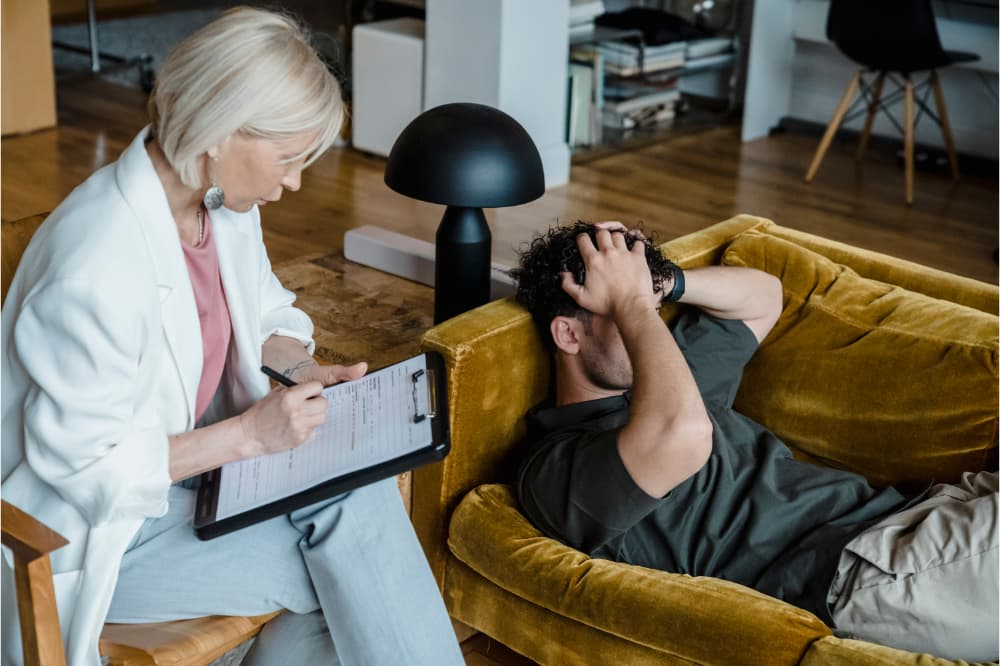In recent years, ketamine use has been glamorised in society, in movies, songs and festivals. This doesn't mean that using the drug is a good idea - this drug is highly addictive and can cause serious problems.
If you are struggling with a ketamine addiction, you are not alone. This illness affects thousands of people across the UK, with 2,211 seeking treatment for ketamine addiction in 2022 - 2023.
Seeking help and being open about your addiction, is a brave step in the right direction.
In today's blog, we will take a look into the health condition associated with ketamine, ‘ketamine bladder syndrome’. What are the symptoms? And when is it time to get help?
What Is Ketamine and What Does It Do
Ketamine is a highly addictive drug that when taken incorrectly can cause serious health effects. It can be used medically to treat patients suffering from high-intensity pain and can treat depression.
People typically abuse this drug recreationally for the feelings it gives of euphoria, and dissociation, as well as the way it alters perceptions of reality.
What Is Ketamine Bladder
Ketamine bladder, formally known as ketamine-induced cystitis, is a condition that results in damage to the bladder's lining and urinary tract and is caused by frequent ketamine use.
This damage can lead to urinary problems, such as urgency, frequency, incontinence, and severe pain during urination.
Ketamine bladder syndrome can lead to permanent damage to the bladder - and in severe cases, you may need surgery to fix the problem.
What Are the Symptoms of Ketamine Bladder?
The symptoms of Ketamine bladder syndrome that you should look out for include:
- Blood in urine
- Pain when urinating
- Persistent and severe pain in the abdomen, especially when urinating.
- Bladder incontinence
If you notice any of these symptoms, you should talk to your doctor immediately.
Recovery may not be easy, but it is possible! There are so many options and support systems put in place to help you through your addiction recovery.
You should always start by reaching out to a friend or family member who you trust, and tell them what has been going on.
Your family and friends are likely to be pleased that you have reached out for help, so don't worry about feeling embarrassed - addiction is an illness and it is not your fault!
Speak to a health professional or addiction specialist about your problem so that they can guide you in the right direction when it comes to recovery. We are here to help you recover. Utilise our online program today!
There are lots of options available from inpatient rehab, to at-home rehab and even at-home detoxes. All of these options come with additional support that will help you to manage your recovery journey.
How to Manage Recovery
There are ways that you can manage your recovery and withdrawal symptoms, such as:
Lifestyle Changes
Eating a healthy balanced diet, staying hydrated and exercising throughout your recovery will help you regain control of your life whilst also keeping your mind off and easing withdrawal symptoms.
Therapy and Counselling
Attending therapy and counselling sessions will help you to be more open about your feelings and if you feel like you may relapse, a therapist will help you to manage the cravings for ketamine.
Building a trusting relationship with your therapist or counsellor will help you to feel at ease with your recovery. Whilst talking to your family and friends is good, having a trained professional to listen can help a lot too.
Support Groups
Attending support groups with people who are also struggling with addiction, whether that be an online or in-person support group.
This can help you to hold yourself accountable and stay on track with your recovery, whilst also helping others and building a sense of community.
Talking to people going through the same thing as you is great as you will have something to relate to and can share ideas on how to manage symptoms and cravings with each other.
This can help you to feel a part of something and making new friends to socialise with is great for getting your life back on track.
When Should I Get Help?
You should reach out and get help whenever you feel like ketamine is beginning to take control of your life. Some of the symptoms you should look out for are:
- Increased Tolerance
- Cravings
- Loss of Control
- Neglecting Responsibilities
- Withdrawal symptoms when not using the drug
- Mood swings and anxiety
You should seek help if you feel you are experiencing these symptoms, no matter how severe your symptoms are.
If you have just recently started taking ketamine recreationally, you should stop using it immediately.
If you are taking medical ketamine, you should let your doctor know straight away if you feel you are experiencing these symptoms so that they can adjust your dosage, or find different ways to manage your symptoms.
Home Rehab With Rehubs
Let's be real, inpatient rehab is not always convenient, and we all have commitments in our everyday lives.
With technology growing quickly, everything is online these days, so why shouldn't rehab be?
So let's turn over a new leaf together and let Rehubs join the path to recovery with you. We have a large support network available and have a tailored approach and no two plans are the same.
Our addiction specialists will work closely with you to determine the help you need and you will then be able to recover from the comfort of your own home at whatever time is best suited to you.
You will have a one-to-one session to discuss how you are coping once a week, and there are also daily group sessions to help you stay on track with your recovery.
Start your free consultation today, it's time to take back control.
Share this
You May Also Like
These Related Stories

Is Ketamine Physically Addictive?

The Signs Of A Ketamine Addiction



No Comments Yet
Let us know what you think